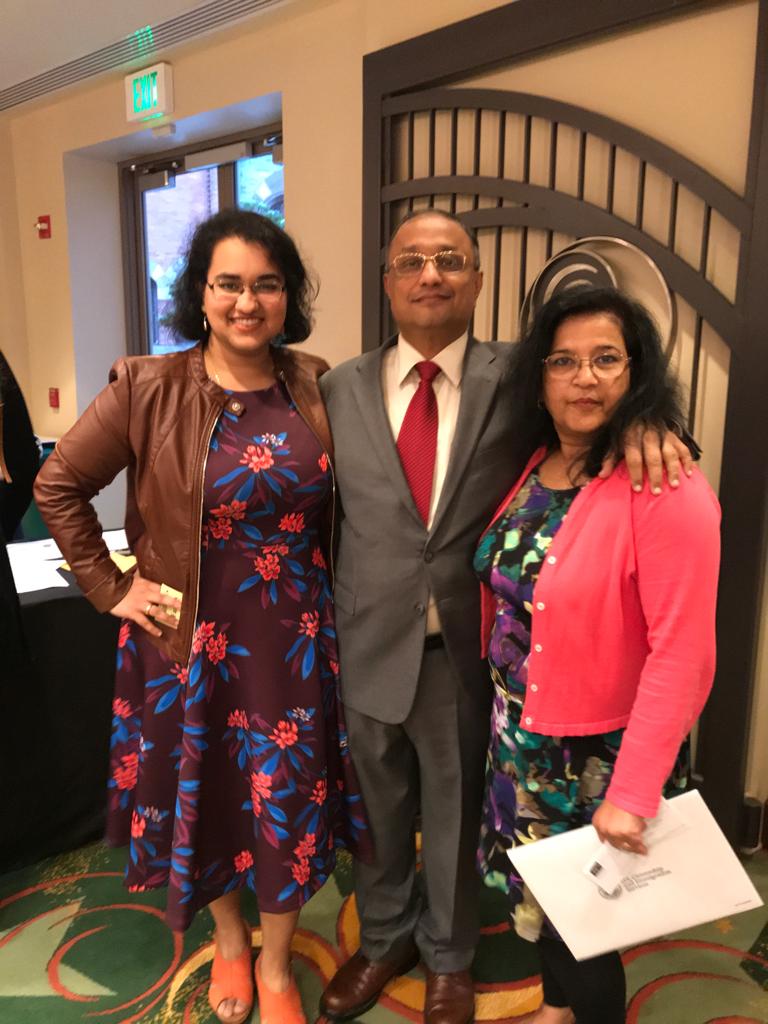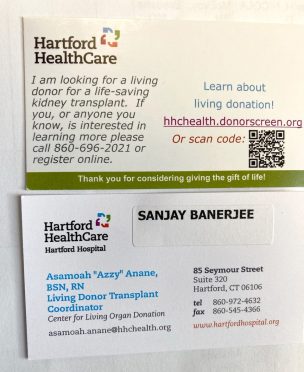<< Back
IOL Psychiatrist Turns to HHC Colleagues for a Kidney Donation

May 09, 2023
Throughout his career as a psychiatrist, Sanjay Banerjee has helped people get well.
Now he is turning to his Hartford HealthCare colleagues for the same assistance.
Dr. Banerjee, a psychiatrist with the Institute of Living, needs a kidney. He’s been battling chronic kidney disease for a few years, and his doctors recently told him he needs a transplant. Without one, he would be destined for dialysis.
He is looking for a living donor, and is turning to Hartford HealthCare’s 30,000-plus colleagues in the hopes of finding a match. A living donation means the organ is taken from a living person for transplantation. Kidney is the most common organ in this type of transplant.

Asamoah (Azzy) Anane, RN BSN, is the living donor transplant coordinator at Hartford Hospital. He says Hartford HealthCare provides a six-week enhanced disability benefit paid at a colleague’s regular rate of pay. Colleagues who act as living donors also will not be required to use a week of PTO time before becoming eligible for disability leave. (Learn more on the Leaves of Absence page of HHC Connect.)
Anane notes that there is zero cost to the donor for the testing, the procedure, or the two years of follow-up care involved in the donation of the kidney.
Also, Anane says a person doesn’t have to “match” with Banerjee in order to help him. Working with the National Kidney Registry based in Connecticut, a donor would provide a kidney to someone within the registry that was a match. In return, Dr. Banerjee would receive a suitable kidney from someone else.
“We don’t use words like ‘compatibility’ or ‘match’ anymore,” he explains. “If you are healthy enough to donate a kidney, you donate on his behalf, and then he gets a transplant from someone else.”
Utilizing this method has a domino effect, Anane says. “By donating a kidney this way, you are helping someone who needs a kidney. He gets a kidney. So that’s two people who move off the (registry) list and you open opportunities for more people.”
Dr. Banerjee is 65 years old, married to a psychologist named Krishna. Their daughter Ela is an endocrinologist in Connecticut. And they have a German shepherd named Bhagera.
They have already reached out to their friends and family searching for potential donors. Dr. Banerjee is hopeful that adding more than 30,000 more people to the list will increase his chances. “Other than my kidneys, I am perfectly healthy and am a good patient for a transplant,” he says.